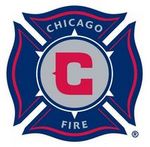| « Local Race Attracts National Competition | NBA Draft: Bulls Make Small But Savvy Moves » |
Fire Fri Jun 24 2011
Could a Foreign Import Help the Fire?
 Following another scoreless draw Wednesday against Real Salt Lake, last year's MLS champions, the Chicago Fire can draw the usual conclusions: great defense in earning yet another shutout and they're still undefeated under interim coach Frank Klopas.
Following another scoreless draw Wednesday against Real Salt Lake, last year's MLS champions, the Chicago Fire can draw the usual conclusions: great defense in earning yet another shutout and they're still undefeated under interim coach Frank Klopas.
On the other hand, that undefeated record is 1-0-4, hardly much to get excited about. Worse, three of those games have been scoreless draws. While it's great that goalkeeper Sean Johnson and his defense are padding their stat sheets, the fact is that even in a generous league like MLS, tying all your games doesn't get you into the playoffs.
So how can the Fire improve their station?
The vagaries of MLS player allocation and roster construction are unlike every other American sports league (and unlike European soccer leagues, too), but the idea is MLS rosters are meant to be roughly equal. There is a salary cap, there's a draft, and player contracts are even negotiated by the league instead of individual teams.
But in 2007, the league instituted a rule that can give teams an advantage if their owners are willing to spend extra money.
The Designated Player Rule, nicknamed the Beckham Rule after the player it was created for, allows teams to keep two players on their roster, pay them whatever they want, and have only a portion of their salaries count against the team's salary cap.
Thus, if a team only had $400,000 per year under the cap to spend on a striker, but wanted to lure a European veteran or a South American star to the U.S., they could offer him any amount and have only a portion of their salary, currently $335,000, count against the cap (and be paid by the league). The rest of the player's salary would be picked up by the team's owners.
Thus, a team like the L.A. Galaxy, currently first in the league, can afford to have David Beckham and Landon Donovan on the same team. (They also have a third DP, for whom they pay an extra luxury tax, but that's another matter.)
The league's third-best team, Seattle Sounders FC, also has two DP's, including Fredy Montero, a 23-year-old Colombian who been with the team since they entered the league two years ago and has been a large reason for their success.
A year ago, the New York Red Bulls pulled one of the bigger signings in MLS history in luring Thierry Henry, and after a slow start, he's starting to pull his weight and then some for the Eastern Conference leaders.
Does Chicago need to get a star player of its own?
Last year the Fire took on Nery Castillo, a Mexican winger who looked like a potential international star a few years ago. But he was a huge disappointment, showing a very poor fitness level and work rate, and made only eight appearances for Chicago.
Thus is the high risk, high reward factor of the Designated Player: When you pick a good one, like Fredy Montero or David Beckham, one who plays hard and brings the right combination of experience, talent and effort, he can instantly raise the level of the entire squad.
Those who know soccer know Beckham wasn't brought here to score goals, tactically speaking. He's a midfielder with incredible precision passing, and the occasional ability to score on free kicks. But the fact that he's made otherwise unknown forwards such as Edson Buddle and Alan Gordon incredibly successful shows how well he can set the table for others.
But Freddie Ljungberg, an original DP for Seattle who was initially a big deal, didn't work out in stints in Seattle or Chicago. It's not fair to chalk it up to age, but it seemed like Ljungberg, an internationally famous veteran, just didn't have the passion for the game anymore, or at least, the passion to play hard for those around him.
This is the most difficult part of scouting a possible Designated Player: You want a player whose talent is a level above most MLS players, but yet not with such an ego that he doesn't get too frustrated to be playing in a mid-level league.
With their current team salaries keeping the Fire under the cap, the recent sale of midfielder Gaston Puerari, and an international player spot open on the roster, the world is Klopas' oyster as far as finding a savior.
The question I come up against, however, whether it's worth a big push to win now.
For a team with the championship pedigree of the Fire, it's probably worth it to them -- they're not an organization accustomed to sitting on the sidelines for the postseason, and to be fair, they've been excellent at avoiding the dreaded "rebuilding year" since their inception. They've got a young team for the most part, though, and generally, I understand the need to sometimes have a bad year or two to build something great.
But in the end, I think the owners and Klopas will pull the trigger and bring someone in.
With the defense clearly shored up under his leadership, the ship is not so full of holes as first thought. If the defense stays sound, then a superstar in midfield or up top could change these draws to wins. In a very weak Eastern Conference, an extra goal or assist per game might be enough to push the Fire into the playoffs come fall.








